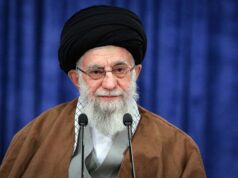The JPC is pleased to bring inSIGHT readers the next in a series of Q&A with members of our Board of Fellows. JPC Fellow David Frum is a contributing editor at DailyBeast/Newsweek and a CNN contributor. He is the author of 7 books, most recently a novel, Patriots.
inSIGHT: It has been said that American “energy independence” is not a realistic goal. How, then, can the United States move toward energy security?
David Frum: Energy security is a problem about motor fuels: fuels (for now) derived from oil. And when we talk about motor fuels, we are trapped by some nasty trade-offs. The world’s cheapest oil is located in the world’s most dangerous place: the Persian Gulf and vicinity. More secure oil (e.g., from Canada and the Gulf of Mexico) is more expensive.
So we have to start from this fact: energy security means paying more for energy – forever. The promise of cheap oil from North American sources is a false promise, and the promise of cheap fuel from non-oil sources (e.g. bio-fuels) is even falser.
But if people accepted that expensive fuel is here to stay, it’s amazing how the market will adapt to reduce demand and generate new supply. After the oil shocks of the 1970s, oil use dropped – not per person, not per car, but in absolute terms. Not until 1996 did a – much larger – U.S. economy again burn as much oil as in 1978. On the eve of the recession in 2007, we still burned only 10% more oil than in 1978.
Americans are adapting again to high oil prices. Already, we see the locus of new home construction shifting from exurbs back to central cities – and not only in the Northeast, but in places like Nashville, Tennessee, and even Los Angeles. We see under-30s choosing lifestyles that allow them to dispense with car ownership altogether, relying instead on car-sharing services like Zipcar.
So my recommendation is as follows:
Since today’s high prices will inevitably drop, as high commodity prices always do, institute now a standby tax on oil. The federal government should tax all oil extracted or imported into the U.S. on the difference between the market price and the standby price of, say, $80. That will create an “umbrella” price so that Persian Gulf or Venezuelan oil never again prices North American oil out of the market. And it will incentivize the demand-side changes necessary to reduce consumption.
The federal government will need new revenues anyway in the years ahead. Better to tax oil than work, saving, and investment.
To read a follow-up discussion on this Q&A with Marc Goldman, a member of the RJC Board of Directors, click HERE.





